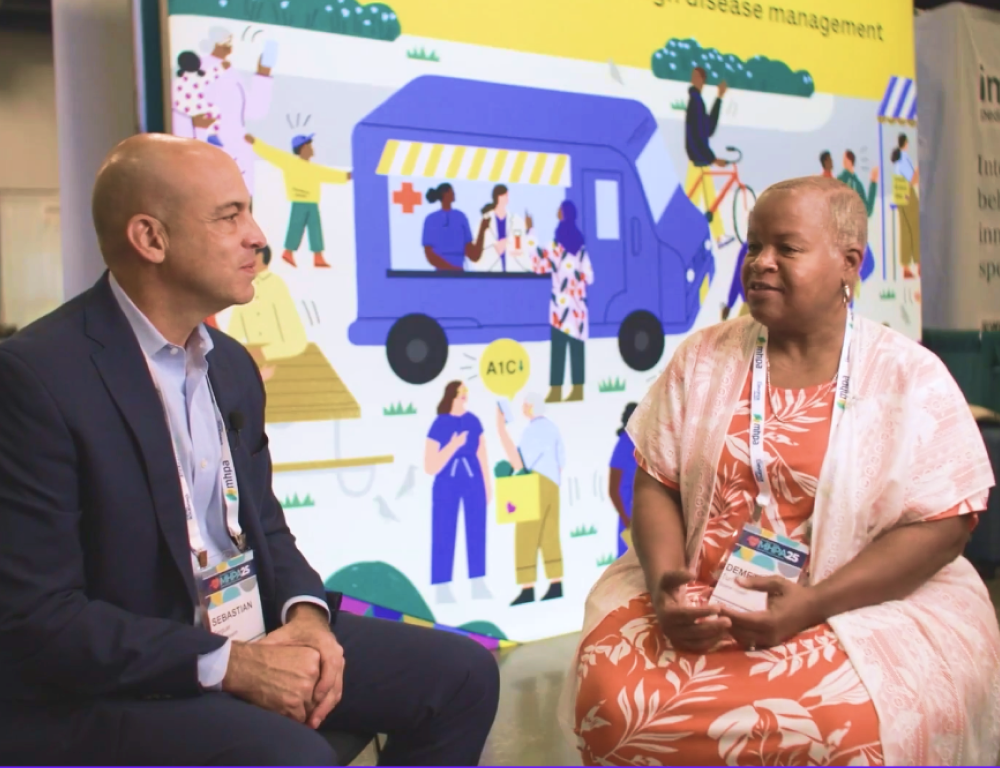SDOH & Chronic Diseases: Upstream and Downstream Interventions | 2023 SDOH and Health Equity Innovations to Transform Population Health Summit
.jpg)
Chronic conditions affect millions of people in the U.S. and cost our healthcare system and economy millions of dollars per year.
On Wednesday, May 17, Sebastian Seiguer, our CEO and Co-Founder, participated in a panel discussion on social determinants of health (SDOH) and chronic diseases during the 2023 SDOH and Health Equity Innovations to Transform Population Health Summit.
The panel was moderated by Erin Lloyd, the Senior Manager of Healthcare Transformation at Genpact. Panelists included Jim Milanowski, the President and CEO of Genesee Health Plan and Dr. Kacey Brown, the Social Determinants of Health and Community Partnership Manager, Florida of Aetna Better Health of Florida.
While genetics and behavior play a role in the onset and continuance of chronic conditions, it is increasingly evident that social determinants of health (SDOH) like income, social support networks, literacy, and housing security have an outsized impact.
SDOH also influence medication adherence, one of the most important factors in effectively managing chronic conditions. Recognizing this complex interplay, the healthcare industry has begun focusing its efforts on addressing these challenges.
These topics were discussed during the panel and we’ve shared our top three takeaways below:
The healthcare industry needs to listen to patients with chronic diseases to understand what SDOH play into their medication adherence — technology can facilitate that.
“Say patient X with diabetes has SDOH issues (transportation, food) that impact her ability to take her meds. Her partner may work at night, and she works during the day. They may share a car. How can she get her prescription? You have to think about everything when you come from a marginalized community”. — Dr. Kacey Brown, the Social Determinants of Health and Community Partnership Manager, Florida of Aetna Better Health of Florida
“Nowhere are SDOH more apparent than in medication taking…The biggest point about medication adherence and chronic conditions is that it’s not something that can get resolved in a primary care visit. These visits are short and getting even more compressed. We know that a chronic condition is managed every single day. That’s where technology can come in to provide more care efficiently and daily.” —Sebastian Seiguer, CEO and Co-Founder, Scene Health
Relationships are an effective way to build trust between healthcare professionals and patients with chronic disease to address SDOH issues.
“Flint, 30 years ago, was thriving with car manufacturing jobs…now It’s basically a ghost town. There’s a mistrust of our government and our institutions. When we placed a community health worker at each Flint public school, what a difference it made to have trusted people that families can go to get assistance with SDOH issues. — Jim Milanowski, President and CEO of Genesee Health Plan
“The gatekeepers are your way in. Find out who they are in the community. Talk to them to make sure you know what the true issues are. Talk to the people who are in the community and are invested and create trust. “ — Dr. Kacey Brown, the Social Determinants of Health and Community Partnership Manager, Florida of Aetna Better Health of Florida
When it comes to helping patients manage their chronic diseases, it’s not just about ensuring patients have their medications, it’s about making sure they can and do take them.
“When we look at the measures for medication adherence, they count possession of medication…Right now, plans have the incentive to put meds in patients’ hands or mailboxes whether they plan to take it or not. But it’s not all about refilling the medication; it’s about whether patients can take their medications.” — Sebastian Seiguer, CEO and Co-Founder, Scene Health
Looking Ahead:
We walked away from the conversation validated in our work helping patients improve their medication adherence and chronic disease management through the power of people, science, and technology. With strong relationships, trust, and a holistic approach that effectively identifies and addresses SDOH, our program is helping patients make radical improvements to their health every day.




Download the Insights into Medication Challenges in Populations with Low Incomes: The Scene Medication Survey

Download the Insights into Medication Challenges in Populations with Low Incomes: The Scene Medication Survey






.png)
